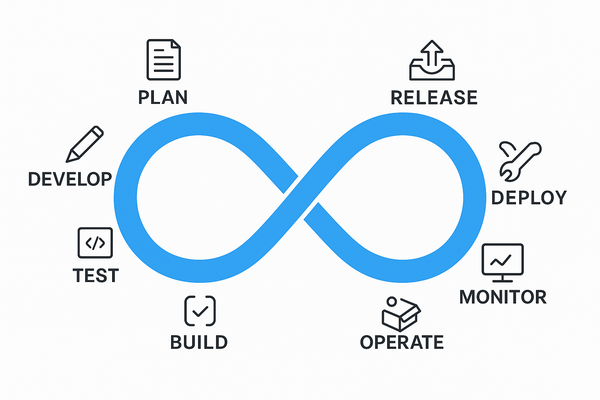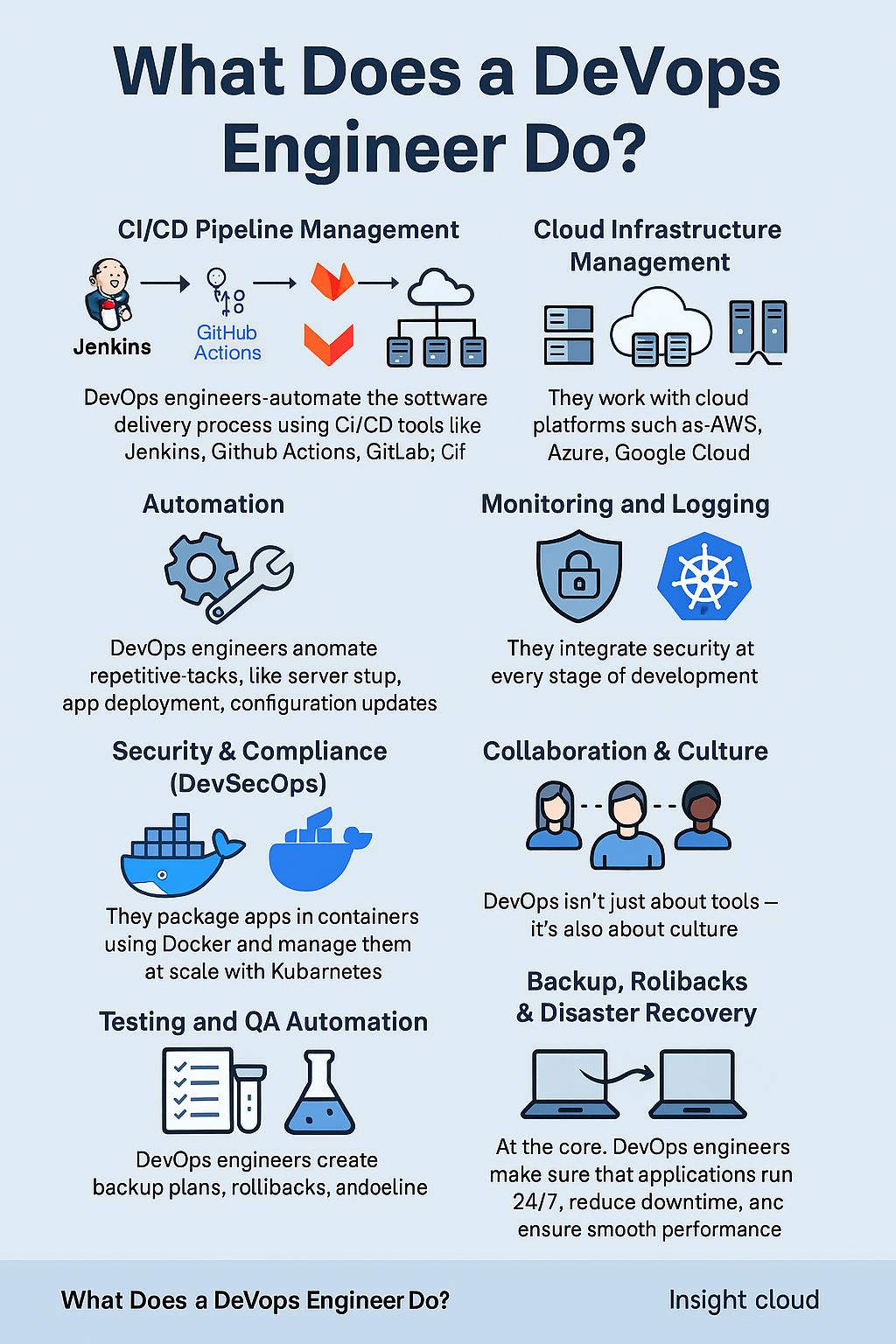Are you a DevOps Engineer or learning DevOps and wondering how to turn your skills into a steady income? Great news — DevOps is one of the most in-demand and high-paying career paths today. But beyond just landing a full-time job, there are several creative and profitable ways to earn money using your DevOps knowledge.
In this blog, we’ll explore multiple ways to make money as a DevOps Engineer, including active and passive income sources. Whether you’re a beginner or an experienced engineer, these ideas will help you monetize your skills and grow your income in 2025 and beyond.
1. Full-Time Job as a DevOps Engineer
This is the most common and stable income path for most DevOps professionals.
- Job Titles: DevOps Engineer, SRE (Site Reliability Engineer), Cloud Engineer, Platform Engineer
- Typical Stack: AWS, GCP, Azure, Docker, Kubernetes, Terraform, Jenkins, GitHub Actions, Ansible
- Salary Range: $70,000 to $160,000+ per year (varies by country and experience)
✅ Pros: Stability, benefits, career growth
❌ Cons: Limited earning ceiling unless promoted
2. Freelancing and Consulting
Use your skills to help businesses on-demand.
- Platforms: Upwork, Freelancer, Toptal, Fiverr
- Services You Can Offer:
- CI/CD pipeline setup
- Docker & Kubernetes deployments
- Infrastructure automation with Terraform or Ansible
- Monitoring and alerting setup (Prometheus, Grafana)
- Hourly Rate: $50 to $150 depending on expertise
✅ Pros: High earning potential, flexibility
✅ Pros: Work with global clients
3. Sell DevOps Tools, Scripts, and Templates
Turn your automation skills into digital products.
- What to Sell:
- Terraform modules
- Docker Compose files
- Prebuilt GitHub Actions workflows
- Kubernetes deployment YAMLs
- Platforms: Gumroad, Sellfy, Etsy (for tech downloads), or your personal blog
✅ Pros: Passive income potential
✅ Pros: Create once, sell repeatedly
4. Start a DevOps YouTube Channel or Online Courses
Video content is one of the best ways to educate and monetize DevOps topics.
- Topics to Cover:
- “How to deploy apps with Kubernetes”
- “DevOps Roadmap for Beginners”
- “AWS CI/CD pipeline setup”
- Monetization Methods:
- YouTube AdSense
- Sponsorships from tools like DigitalOcean, Linode, JetBrains
- Course sales (Udemy, Teachable, or self-hosted)
✅ Pros: Builds personal brand + recurring income
✅ Pros: Scalable audience
5. Write Blogs, eBooks, and DevOps Newsletters
If you’re not into video, writing is equally powerful.
- Monetize Through:
- Display ads (Google AdSense, Ezoic, Mediavine)
- Affiliate links (AWS, hosting, courses)
- Sell eBooks like “The DevOps Beginner’s Guide”
- Create a paid newsletter on Substack
✅ Pros: Easy to start, long-term SEO value
✅ Pros: Grows trust and email list
6. Build & Sell DevOps SaaS Tools
Advanced, but extremely profitable.
- Ideas:
- Uptime monitoring service
- Deployment dashboards
- Cost-optimization tools for AWS or Kubernetes
- Monetization: Monthly or yearly subscriptions
✅ Pros: Scalable recurring revenue
❌ Cons: Requires time, coding, and support
7. Offer Mentorship, Coaching or Bootcamps
Many people want to break into DevOps — you can help them.
- Where to Offer Mentorship: Codementor, MentorCruise, ADPList
- Other Options: Launch your own DevOps Bootcamp or private cohort-based course
✅ Pros: High pay per session, fulfilling work
✅ Pros: Build community and trust
Summary Table: Ways to Make Money in DevOps
| Method | Type | Effort | Scalability | Income Potential |
|---|---|---|---|---|
| Full-time Job | Active | Medium | Low | High |
| Freelancing | Active | High | Medium | High |
| Sell Templates/Scripts | Passive | Medium | High | Medium-High |
| YouTube/Courses | Semi-passive | High | High | High |
| Blogging/Affiliates | Semi-passive | Medium | High | Medium-High |
| SaaS Tools | Passive | Very High | Very High | Very High |
| Mentorship/Teaching | Active | Medium | Medium | Medium-High |
Final Thoughts
DevOps Engineers have more income opportunities than ever. Whether you stick with a job, freelance, or start a content or product-based side hustle, the DevOps world gives you the tools to earn well — and build a name for yourself.
Start with what you’re comfortable with. Maybe a blog or YouTube channel, then expand into freelancing or product creation.
Ready to build a profitable DevOps side hustle? Start with a blog or YouTube channel today. Document everything you learn — it’s valuable!
Want a step-by-step roadmap to make your first $1,000 as a DevOps Engineer? Let me know and I’ll share a weekly action plan!

Next Steps
- Follow our DevOps tutorials
- Explore more DevOps engineer career guides
- Subscribe to InsightClouds for weekly updates
- Subscribe our DevOps youtube channel
